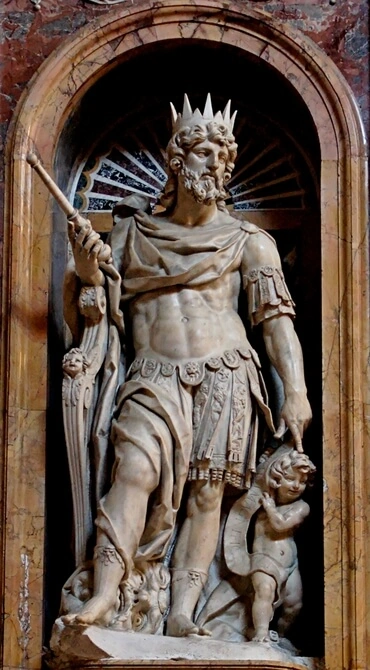Apocalypse Revealed # 243
243. The third living creature had a face like a human being. This symbolizes the Divine truth of the Word in respect to its wisdom.
A human being in the Word symbolizes wisdom, because the human being was born to receive wisdom from the Lord and become an angel. The wiser someone is, therefore, the more human he is. True human wisdom consists in perceiving the existence of God, the nature of God, and what pertains to God. This is what the Divine truth of the Word teaches.
That a human being symbolizes wisdom is apparent from the following passages:
I will make a man more rare than fine gold, and a human being more rare than the gold of Ophir. (Isaiah 13:12)
A man means intelligence, and a human being wisdom.
...the inhabitants of the earth shall be burned up, and rare will be the human being left. (Isaiah 24:6)
...I will sow the house of Israel and the house of Judah with the seed of a human being and the seed of an animal. (Jeremiah 31:27)
You are My flock...; you are humankind, I am your God. (Ezekiel 34:31)
...the ruined cities shall be filled with a flock of humankind. (Ezekiel 36:38)
I looked upon the earth when, lo, it was empty and void, and to the heavens when they had not their light... I looked when, lo, there was no human being... (Jeremiah 4:23, 25)
They sacrifice a human being, they kiss the calves. (Hosea 13:2)
He measured the wall (of the Holy Jerusalem): one hundred and forty-four cubits, the measure of a human being, which is that of an angel. (Revelation 21:17)
So, too, in many other places, where a human being symbolizes someone who is wise, and in an abstract sense, wisdom itself.
David

David is one of the most significant figures in the Bible. He was a musician, one of history’s greatest poets, the boy warrior who killed the giant Goliath, a devout servant of God, a great leader of men and ultimately Israel’s greatest king. His stories cover the second half of the First Book of Samuel and all of the Second Book of Samuel, and his legacy was such that Jesus himself was born in the “City of David” to fulfill prophecies. For all that, David the man was not perfect. Most notoriously, he ordered his soldiers to make sure one of their comrades was killed in battle because he had seen the man’s wife bathing and wanted her as his own. He was also willing to actually ally with the Philistines for a time, while his predecessor Saul was still king. But in spiritual terms, David’s meaning matches his reputation: He represents the Lord, and especially the Lord as we are able to know Him and understand Him. The Writings call this “divine truth,” and it can be our ultimate guide if we want to serve the Lord and make His desires our own. This representation makes sense if we look at following the Lord as a whole picture. There are essentially two elements. First, we need to accept the Lord, believe in Him, open our hearts to Him, worship Him. These are matters of affection, and related to the Lord’s divine goodness. And they are generally represented by priests, who lead worship and perform rituals. Second, we need to act in accord with the Lord’s wishes: We need to serve others, care for those in need, defend the defenseless and work to make life and society better for everyone. These actions require thought, judgment, design, and are thus related to Lord’s divine truth, or divine guidance. They are generally represented by kings, who are men of action and are responsible for the activity of their nations. As the greatest of the kings, David represents this truth in its greatest form.






